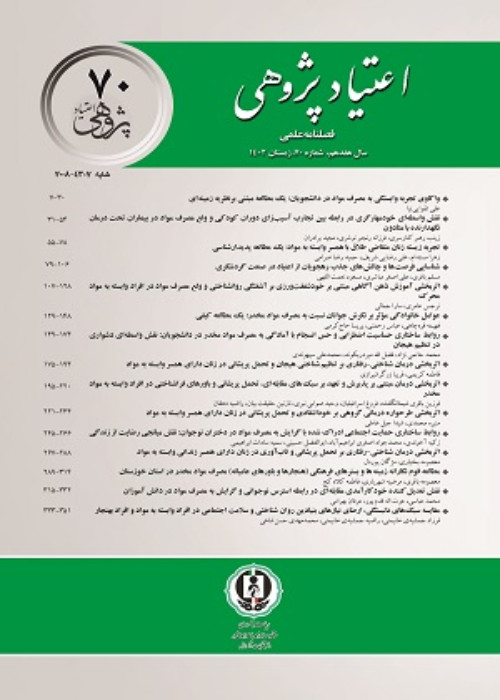The Effectiveness of Mindfulness-based Cognitive Therapy on Treatment Motivation and Self-Criticism in Substance-Dependent Individuals
The present study was conducted to investigate the effect of mindfulness-based cognitive therapy on treatment motivation and self-criticism in substance-dependent individuals.
This research was a semi-experimental study with a pre-test and post-test design with a control group. The statistical population of the study included substance-dependent individuals referring to the Medium-Term Residential Recovery Center in the city of Astara in the first quarter of 2020. Among them, 20 people were selected by convenience sampling method and were randomly assigned to experimental (n = 10) and control (n = 10) groups. The research measurement instruments were the stages of change readiness and treatment eagerness scale and the levels of self-criticism scale. To analyze the data, the descriptive statistics and multivariate analysis of covariance were used.
Based on the results obtained from the differences between the experimental and control groups in pre-test and post-test, the effectiveness of mindfulness-based cognitive therapy on treatment motivation and self-criticism in substance-dependent individuals was confirmed. In other words, the results showed that mindfulness-based cognitive therapy increased treatment motivation and decreased self-criticism in the experimental group.
According to the results of the study, it is recommended to professionals active in the field of addiction treatment to use the protocol of mindfulness-based cognition therapy as a psychological adjunctive therapy to increase treatment motivation and also to reduce self-criticism in substance-dependent individuals.
- حق عضویت دریافتی صرف حمایت از نشریات عضو و نگهداری، تکمیل و توسعه مگیران میشود.
- پرداخت حق اشتراک و دانلود مقالات اجازه بازنشر آن در سایر رسانههای چاپی و دیجیتال را به کاربر نمیدهد.




